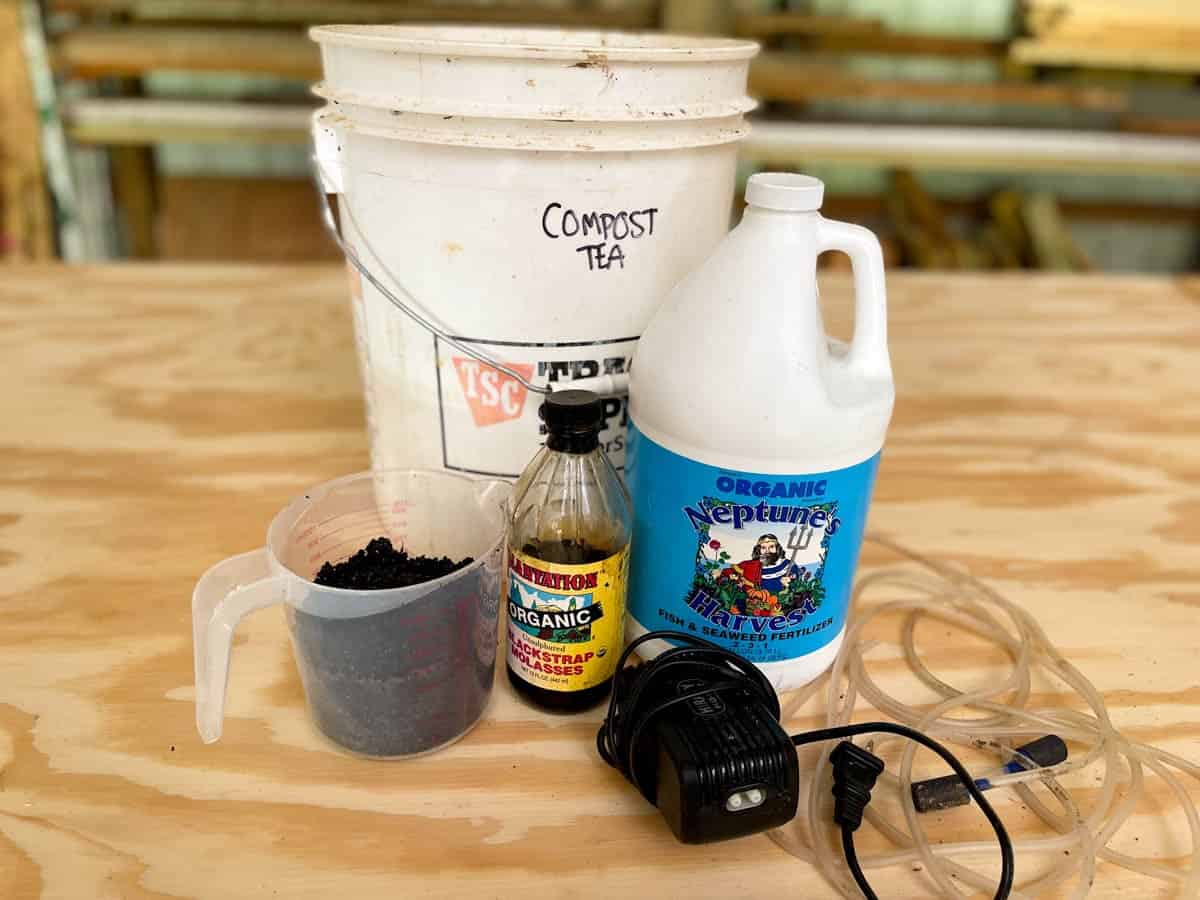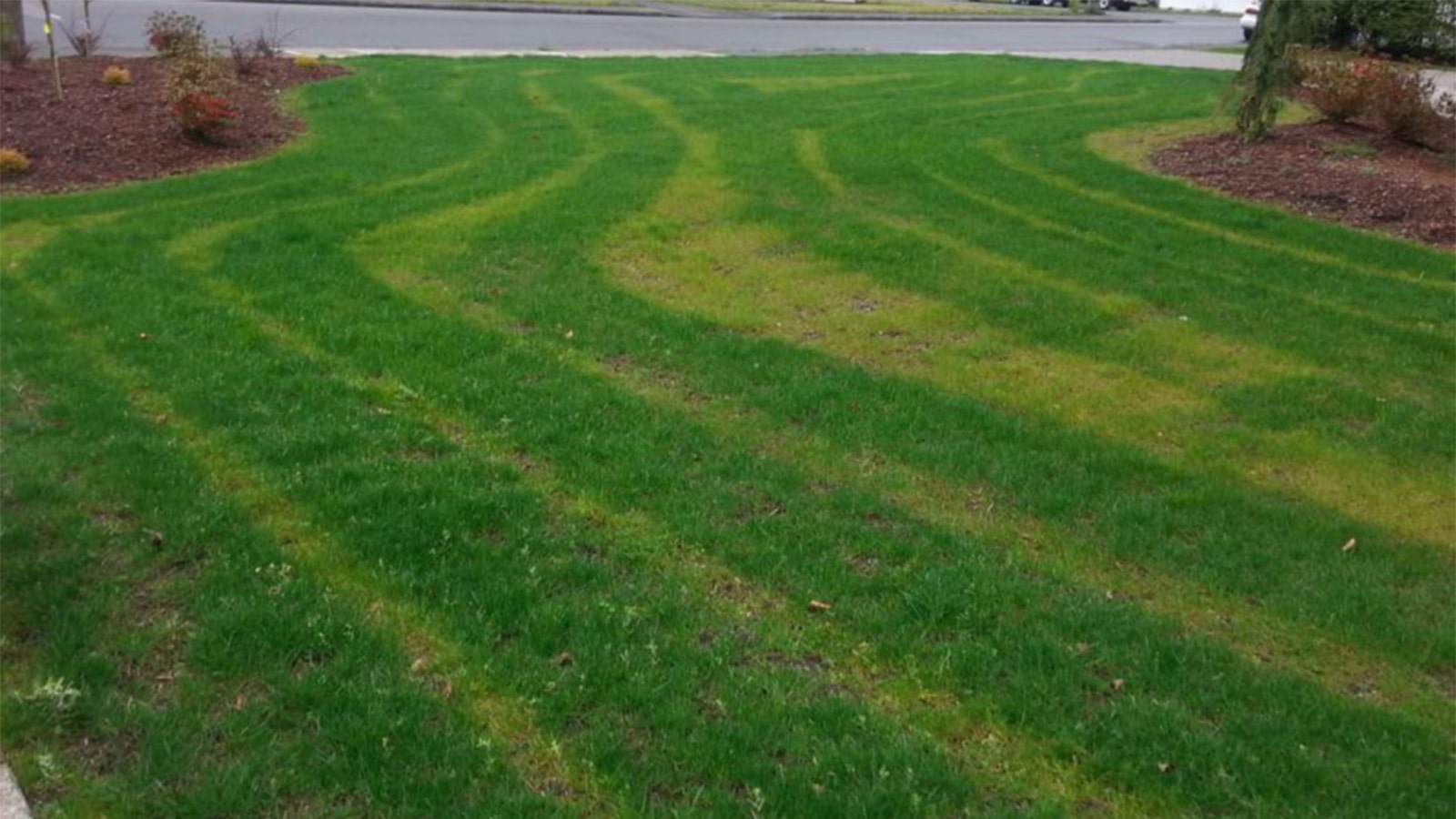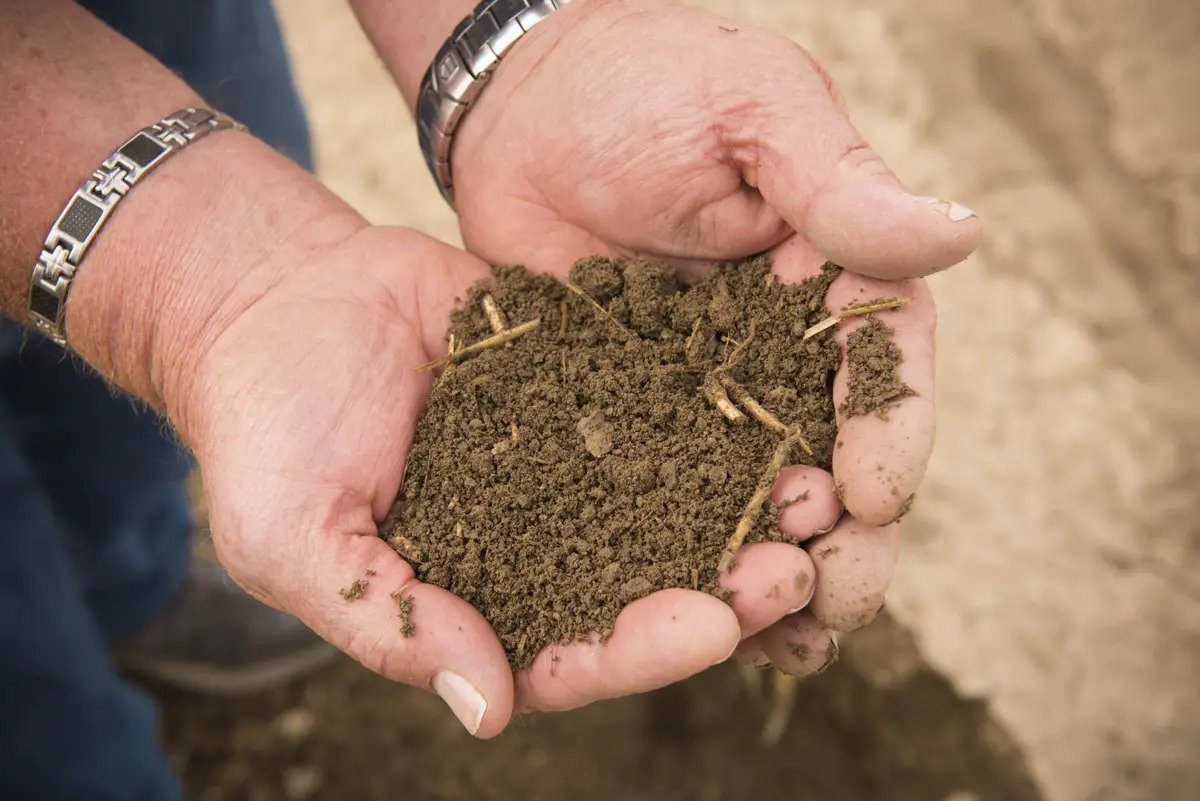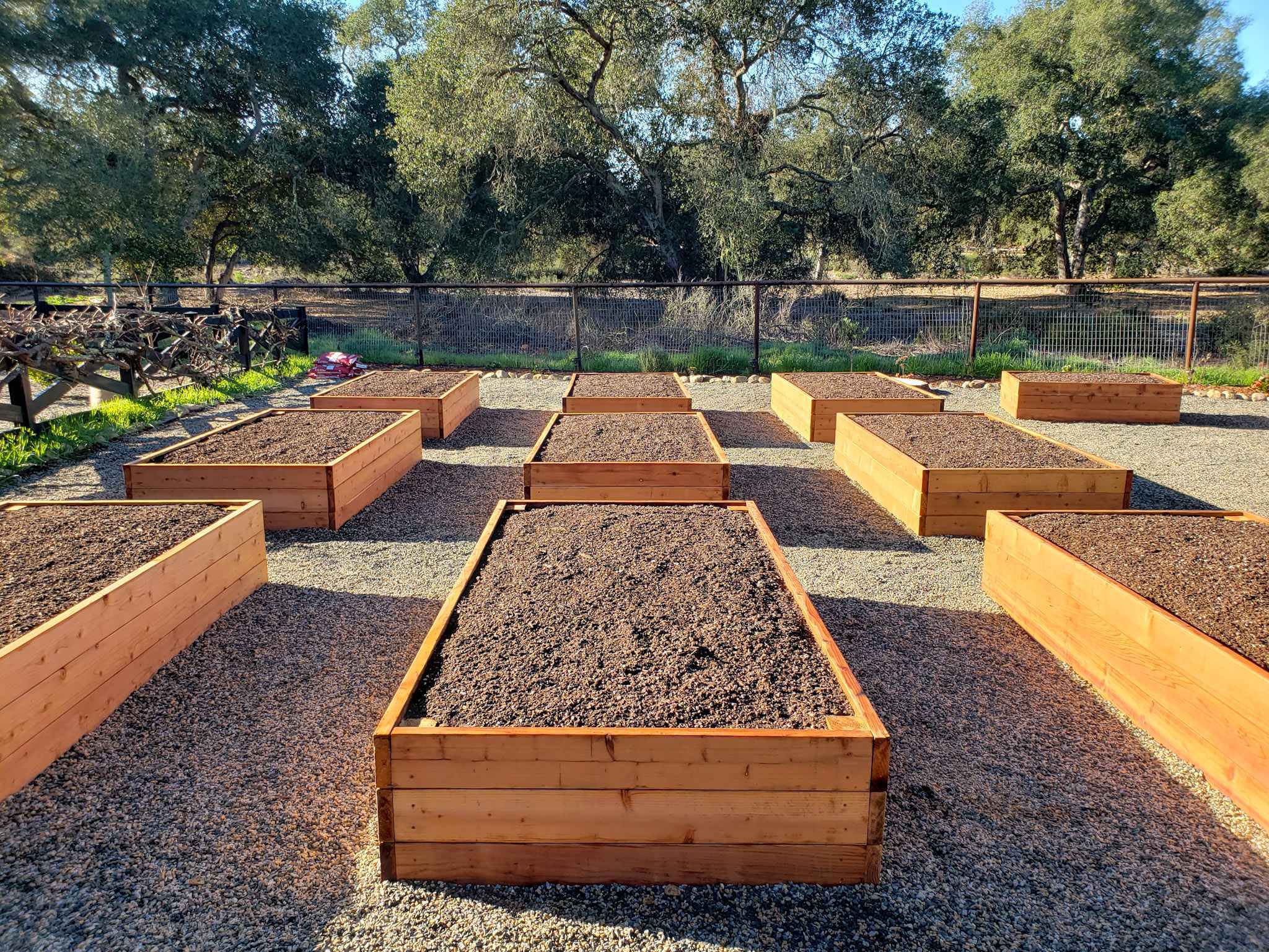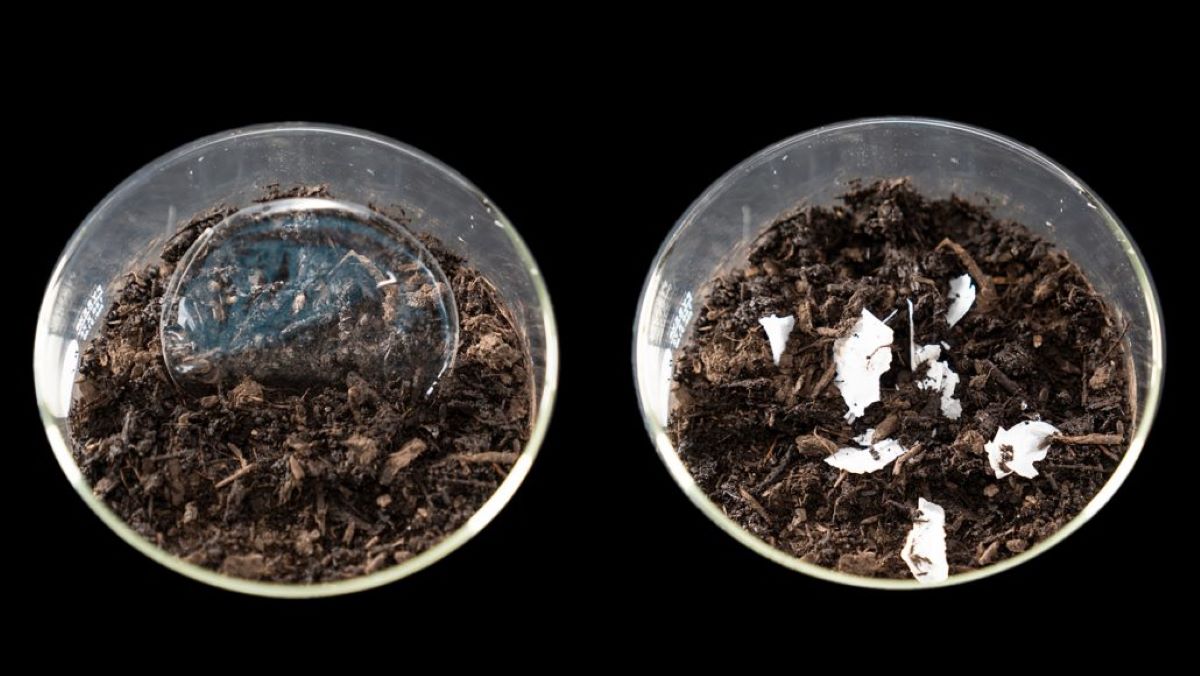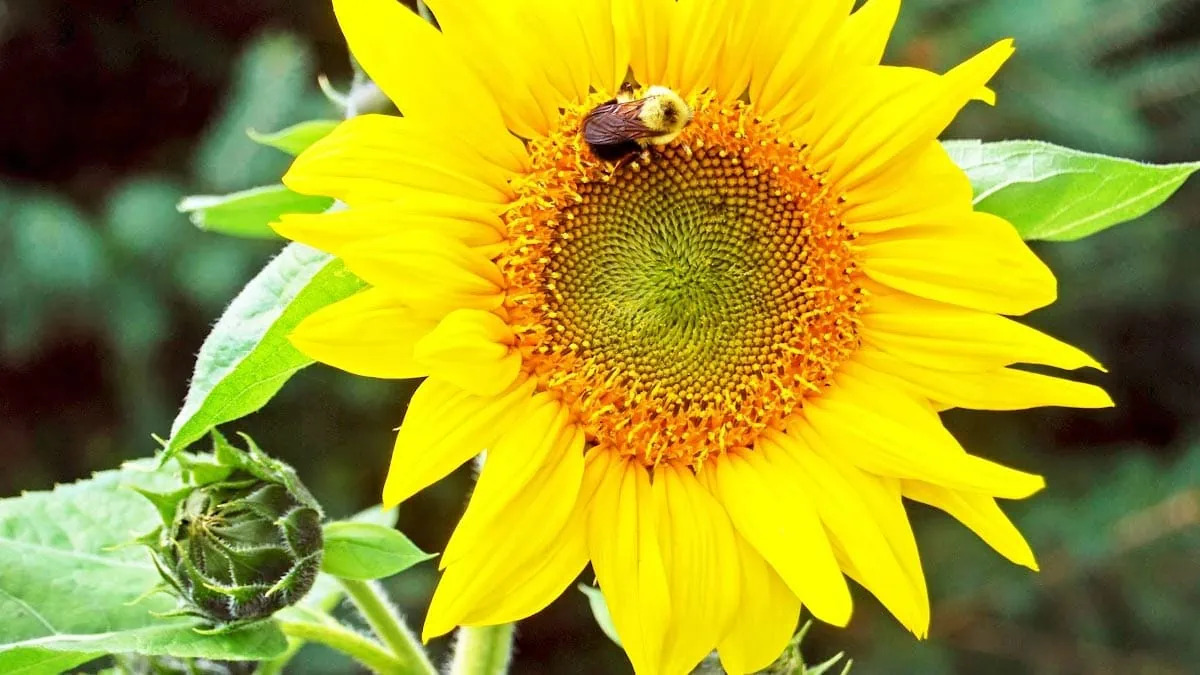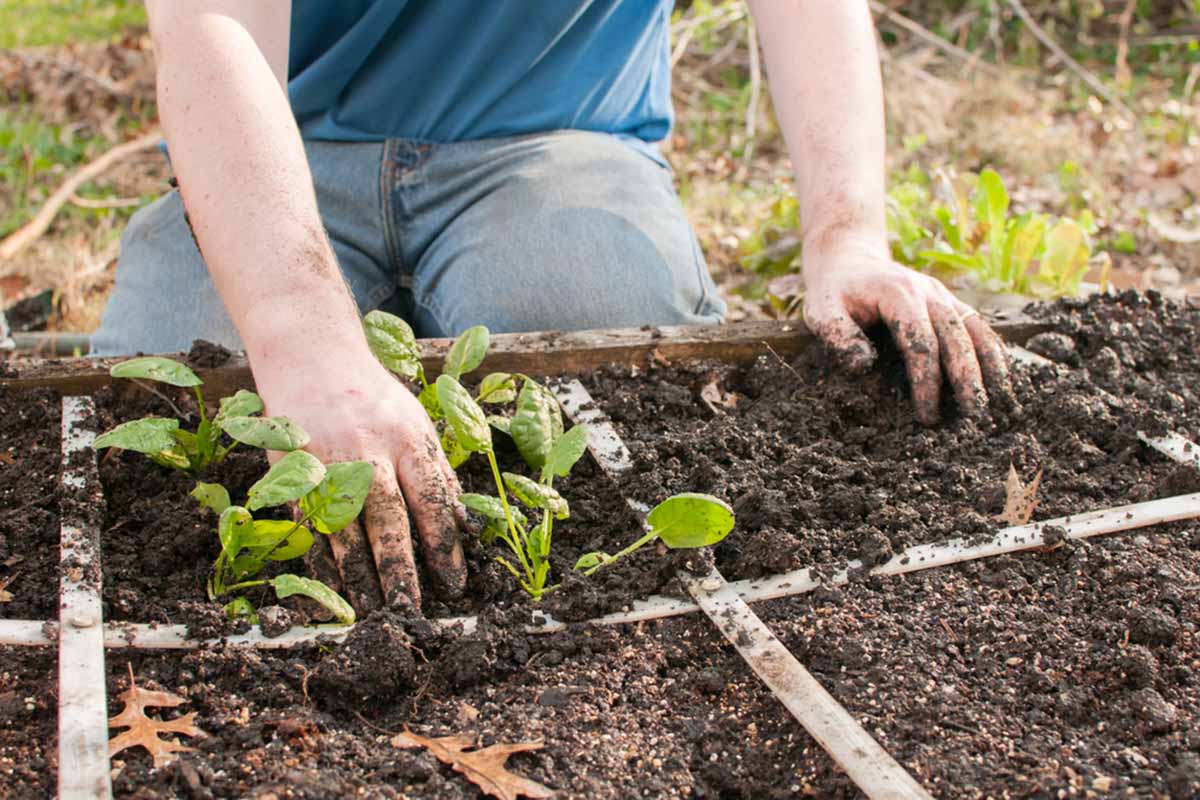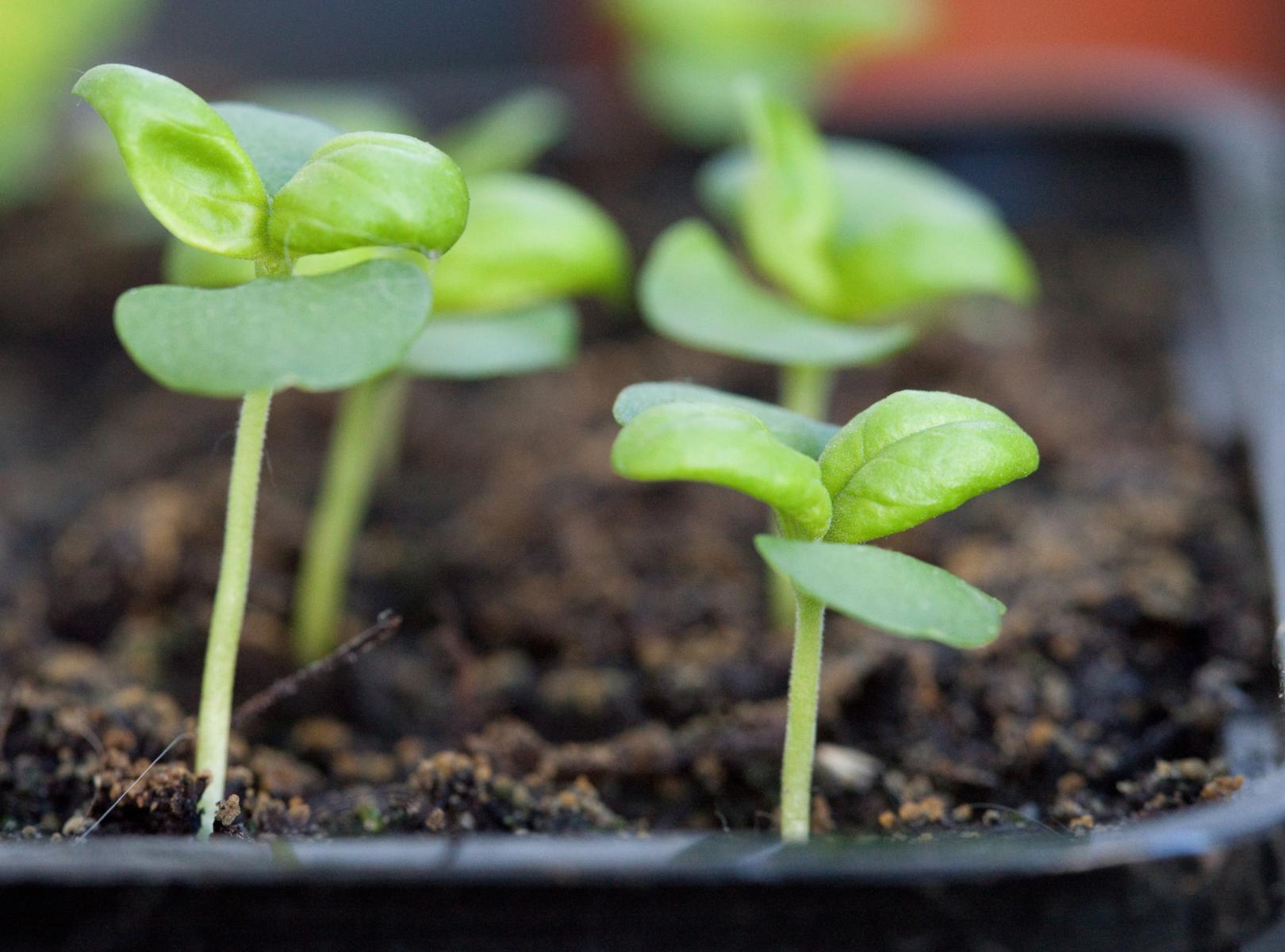Home>Gardening Tips and Tricks>Maximizing Yield>How Much Compost Is Too Much
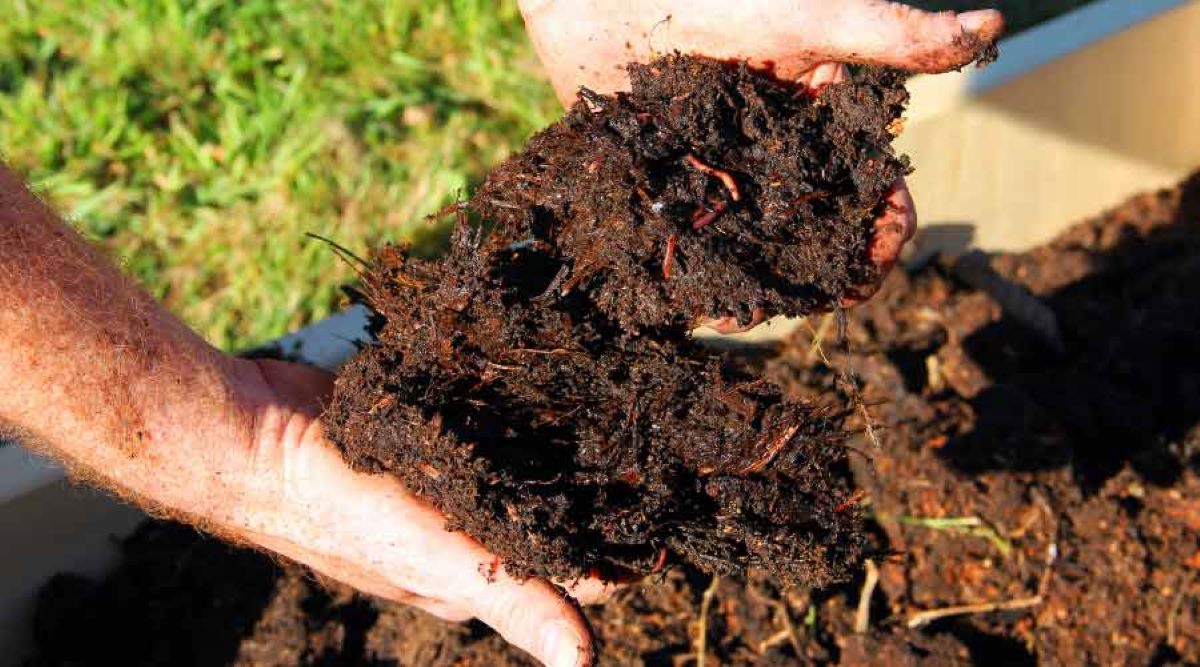

Maximizing Yield
How Much Compost Is Too Much
Modified: February 9, 2024
Learn how to maximize your yield by discovering the optimal amount of compost for your garden. Avoid overdoing it with too much compost to ensure healthy crops and a thriving harvest.
(Many of the links in this article redirect to a specific reviewed product. Your purchase of these products through affiliate links helps to generate commission for Chicagolandgardening.com, at no extra cost. Learn more)
Table of Contents
Introduction
Welcome to the world of composting! If you are a gardener, you’ve probably heard about the amazing benefits of using compost. Compost is a valuable organic material that is created through the decomposition of plant and animal matter. It enriches the soil, improves its structure, and provides essential nutrients for plant growth. However, like with many things in life, moderation is key when it comes to using compost.
While composting is a fantastic way to maximize yields and promote sustainable gardening practices, it is important to understand the dos and don’ts of compost application. Applying too much compost can actually have detrimental effects on your plants and the environment. It is crucial to strike a balance between the benefits of compost and the potential risks of overuse.
In this article, we will explore the benefits of using compost, factors to consider when using compost, the importance of moderation, signs of excessive compost application, the negative impacts of excessive compost, and tips for finding the right balance. By the end, you’ll have a better understanding of how much compost is too much and how to optimize its usage for maximum yield.
Benefits of Using Compost
Using compost in your garden offers a wide range of benefits that can greatly enhance the health and productivity of your plants. Compost is rich in organic matter, which acts as a natural fertilizer and soil conditioner. Here are some of the key benefits of using compost:
- Enriches the soil: Compost improves the overall quality of the soil by providing essential nutrients, such as nitrogen, phosphorus, and potassium. These nutrients are slowly released, ensuring a steady supply for plant growth.
- Enhances soil structure: The organic matter in compost improves soil structure by increasing its ability to retain moisture, allowing for better water drainage, and reducing soil erosion.
- Promotes beneficial microorganisms: Compost is teeming with beneficial microorganisms, such as bacteria and fungi, which help break down organic matter and convert nutrients into forms that plants can easily absorb.
- Suppresses diseases and pests: Compost contains natural substances that can suppress the growth of certain plant diseases and pests. This reduces the need for chemical pesticides, making it an environmentally friendly option.
- Encourages root development: Compost provides a favorable environment for root growth by creating a loose and well-aerated soil structure. This allows roots to penetrate easily and access water and nutrients.
- Reduces the need for synthetic fertilizers: By using compost as a natural fertilizer, you can decrease your reliance on synthetic fertilizers. This not only saves you money but also helps to minimize the environmental impact associated with their production and use.
By incorporating compost into your gardening routine, you can significantly improve the overall health and productivity of your plants. The organic matter, nutrients, and beneficial microorganisms present in compost work together to create a thriving ecosystem in your garden, resulting in stronger, healthier plants and higher yields.
Factors to Consider When Using Compost
While compost is a valuable resource for your garden, there are several factors you need to consider to ensure its optimal usage. Understanding these factors will help you avoid potential pitfalls and make the most of your compost application. Here are some important considerations:
- Type of compost: Not all compost is created equal. The type of compost you use, such as homemade or commercially produced, can impact its nutrient composition and quality. Additionally, different composts may have varying pH levels, so it’s essential to select one that aligns with the needs of your plants.
- Compost maturity: The maturity of compost refers to the degree of decomposition it has undergone. Mature compost is rich in nutrients and has a stable microbial population. It’s important to use fully matured compost to ensure that the nutrients are readily available for your plants.
- Soil type: The characteristics of your soil, such as its texture, pH level, and nutrient content, can influence the effectiveness of compost. Different types of soil may require different levels of compost application to achieve optimal results. Conducting a soil test can help you determine the nutrient needs of your soil.
- Plant requirements: Different plants have varying nutrient requirements. Before applying compost, consider the specific needs of the plants you are growing. Some plants, like leafy vegetables, have higher nitrogen requirements, while others may need more phosphorus or potassium. Tailor your compost application accordingly.
- Environmental conditions: Factors such as temperature, humidity, and rainfall can affect the breakdown of compost and the availability of nutrients to plants. Adjust your compost application rate based on these environmental conditions to ensure efficient nutrient uptake by your plants.
- Compost application rate: It’s crucial to apply compost at the appropriate rate. Too little compost may not provide enough nutrients, while too much can overwhelm your plants and lead to nutrient imbalances. Follow recommended guidelines or consult with local gardening experts to determine the ideal application rate for your specific situation.
Considering these factors will help you make informed decisions when using compost in your garden. By taking into account the type and maturity of compost, understanding your soil and plant requirements, and adjusting your application rate based on environmental conditions, you can maximize the benefits of compost and promote healthy plant growth.
The Importance of Moderation
While compost offers numerous benefits, it’s important to remember that moderation is key when applying it in your garden. Using compost in excess can have negative consequences and potentially harm your plants and the environment. Here are some reasons why moderation is important:
Avoiding nutrient imbalances: Applying excessive amounts of compost can lead to nutrient imbalances in the soil. Certain nutrients, like nitrogen, can become overly abundant, while others may become deficient. This can adversely affect plant growth and lead to nutrient deficiencies or toxicities.
Preventing nutrient runoff: When excessive amounts of compost are applied, nutrients can leach out of the soil and enter groundwater or local waterways. This can contribute to water pollution, harming aquatic ecosystems and negatively impacting the overall environmental balance.
Promoting plant health: Plants need a balanced and diverse diet of nutrients to thrive. While compost provides many essential nutrients, overloading plants with excessive compost can disrupt this balance. Moderation allows plants to receive the necessary nutrients without overwhelming their systems.
Minimizing waste: Applying compost in moderation allows you to make the most efficient use of this valuable resource. Overusing compost can lead to waste, as excess nutrients may not be fully absorbed by the plants. By using an appropriate amount, you can reduce waste and ensure that compost is used effectively.
Preserving soil structure: Applying excessive compost can lead to soil compaction and poor drainage, as the excessive organic matter can bind together and create a dense layer. This can negatively impact root growth and make it harder for plants to access water and nutrients in the soil.
By practicing moderation when using compost, you can avoid nutrient imbalances, prevent runoff, promote plant health, minimize waste, and preserve soil structure. Taking these measures will ensure the long-term sustainability and productivity of your garden.
Signs of Excessive Compost Application
It’s important to be aware of the signs that indicate you may be applying too much compost in your garden. While compost is beneficial, overdoing it can lead to negative effects on plant health. Here are some common signs that may indicate excessive compost application:
- Stunted growth: If your plants are showing poor growth and appear smaller than expected, it could be a sign of excessive compost. Overabundance of nutrients can hinder root development and limit the plant’s ability to take up water and essential minerals.
- Yellowing leaves: Excessive compost application can result in yellowing leaves, which is a sign of nutrient imbalances. Too much nitrogen can cause leaves to turn yellow or even brown, indicating an overload of this nutrient.
- Burning or scorching: When compost is applied in excessive amounts, it can release excess salts and cause burning or scorching of plant tissues. This can often be seen as browning or crisping of leaf margins, indicating an unfavorable environment for plant growth.
- Poor water drainage: Applying too much compost can lead to poor water drainage as the soil becomes overly compacted. Excessive organic matter can bind together and create a dense layer, making it difficult for water to penetrate the soil properly.
- Weed growth: Excessive amounts of compost can encourage weed growth. Weeds thrive in nutrient-rich environments, and overdoing compost application can provide an ideal setting for their proliferation.
- Fungal or bacterial diseases: When compost is used excessively, it can create a favorable environment for the growth of fungal or bacterial diseases. Overabundance of moisture and nutrients can lead to increased disease incidence and spread among your plants.
- Unbalanced pH levels: Excessive compost can alter the pH levels of the soil, causing it to become too acidic or alkaline for certain plants. This can negatively impact nutrient availability and hinder plant growth.
Observing these signs in your garden is a clear indication of excessive compost application. If you notice any of these symptoms, it’s important to reassess your composting practices and adjust the amount of compost you apply to avoid further complications.
Negative Impacts of Excessive Compost
While compost is generally beneficial for soil health and plant growth, using excessive amounts of it can have negative consequences. It’s important to be aware of the potential drawbacks of overusing compost in your garden. Here are some of the negative impacts that can arise from excessive compost application:
- Nutrient imbalances: Applying excessive compost can lead to an imbalance of nutrients in the soil. Overabundance of certain nutrients, such as nitrogen, phosphorus, or potassium, can hinder proper plant growth and result in nutrient deficiencies or toxicities.
- Water pollution: When excessive compost is applied, excess nutrients can leach into groundwater or local waterways, leading to water pollution. This can disrupt aquatic ecosystems and contribute to the growth of harmful algal blooms.
- Poor soil structure: Overdoing compost application can cause soil compaction, reducing pore space and impairing water infiltration and drainage. The excessive organic matter can create a dense layer, making it harder for plant roots to penetrate and access nutrients and water.
- Increased weed growth: Excessive compost can provide a fertile environment for the growth of weeds. Weeds thrive in nutrient-rich soil, and an overabundance of compost can inadvertently promote their growth and make weed control more challenging.
- Increased disease risk: Too much compost can create a favorable environment for pathogens, such as fungi and bacteria, to thrive. The excess moisture and nutrients can contribute to the development and spread of diseases, negatively impacting the health of your plants.
- Unbalanced pH levels: Excessive compost can alter the pH levels of the soil, making it too acidic or alkaline for certain plants. This can hinder nutrient availability, as different plants have specific pH requirements for optimal growth.
- Waste of resources: Overusing compost can lead to unnecessary waste. If excessive amounts of compost are applied, it may not be fully utilized by plants, resulting in a waste of valuable organic matter and nutrients.
Understanding the negative impacts of excessive compost application can help you make more informed decisions about the appropriate amount of compost to use in your garden. By finding the right balance, you can avoid these drawbacks and ensure the long-term health and productivity of your plants and soil.
Finding the Right Balance
When it comes to using compost in your garden, finding the right balance is crucial for optimal plant growth and environmental sustainability. To strike this balance, consider the following factors:
Soil testing: Conduct a soil test to assess the nutrient levels and pH of your soil. This will help you determine the specific nutrient requirements of your plants and guide you in adjusting your compost application accordingly.
Compost quality: Ensure that the compost you use is of high quality and fully matured. This will ensure that it contains beneficial microorganisms and a balanced nutrient profile, providing maximum benefits to your plants.
Plant needs: Different plants have varying nutrient requirements. Research the specific nutritional needs of the plants you are growing and adjust your compost application accordingly. Leafy greens may require higher nitrogen levels, while flowering plants may benefit from more phosphorus.
Environmental factors: Consider the environmental conditions in your area, such as temperature and rainfall patterns. Adjust your compost application rate based on these factors to ensure optimal nutrient availability and minimize leaching or runoff.
Use compost as part of a well-rounded approach: Compost should be used in conjunction with other organic fertilizers and soil amendments. Incorporating a diverse range of nutrients and amendments will help create a balanced and nutrient-rich environment for your plants.
Regular monitoring: Keep an eye on your plants for signs of nutrient deficiencies or imbalances. Monitor their growth, leaf color, and overall health to assess the effectiveness of your compost application. Adjustments may be required if any issues arise.
Practice crop rotation: Rotate your crops annually to break disease cycles and prevent nutrient depletion. This can help maintain soil fertility and reduce the reliance on excessive compost application.
By considering these factors and finding the right balance in your compost application, you can maximize the benefits while minimizing the negative impacts. A mindful and strategic approach to compost usage will result in healthier plants, productive yields, and a more sustainable gardening practice.
Tips for Proper Compost Application
To ensure that you are applying compost in the most effective and efficient way, consider the following tips:
- Apply compost at the right time: Incorporate compost into your soil before planting to allow for proper nutrient distribution and integration with the existing soil structure. This will provide a solid foundation for your plants to grow.
- Spread compost evenly: Use a rake or garden fork to evenly distribute the compost across the soil surface. This will ensure uniform nutrient availability and prevent concentration of compost in specific areas.
- Consider top dressing for established plants: For existing plants, you can apply a thin layer of compost around the base of the plant. Gently work it into the top few inches of soil without disturbing the plant’s roots.
- Avoid contact with plant stems: Keep the compost away from direct contact with the stems of plants, as this can lead to moisture buildup and increase the risk of disease or rot.
- Water thoroughly after application: After applying compost, water the area thoroughly to help incorporate the compost into the soil and activate nutrient release. This will also prevent the compost from drying out and becoming less effective.
- Mulch on top of compost: Consider using a layer of organic mulch over the compost to help retain moisture, suppress weeds, regulate soil temperature, and further enhance the overall health of your garden.
- Monitor and adjust: Regularly monitor your plants for any signs of nutrient deficiencies or imbalances. If necessary, adjust your compost application rate or supplement with additional fertilizers to address any nutrient gaps.
- Compost in small batches: If you are using homemade compost, aim to produce smaller, manageable quantities on a regular basis. This will ensure that your compost is consistently fresh and properly decomposed.
- Rotate compost application areas: To avoid excessive buildup of nutrients in specific areas, rotate the areas where you apply compost each growing season. This will help distribute nutrients more evenly and minimize the risk of nutrient imbalances.
- Follow safe composting practices: When creating your own compost, follow proper composting practices to ensure that the compost is free from pathogens or contaminants. This includes maintaining adequate temperature and moisture levels, as well as proper turning and aging of the compost pile.
By following these tips, you can ensure that your compost is applied correctly and effectively, maximizing the benefits for your plants and soil. Proper compost application will result in healthier plants, improved soil fertility, and ultimately, higher yields in your garden.
Conclusion
Compost is undoubtedly a valuable resource for gardeners, offering numerous benefits for plant growth and soil health. However, it is essential to exercise moderation and find the right balance when it comes to compost application. Overusing compost can lead to nutrient imbalances, water pollution, poor soil structure, increased weed growth, disease risks, unbalanced pH levels, and resource waste.
By considering factors such as soil type, compost quality, plant needs, environmental conditions, and regular monitoring, you can ensure proper compost application. Remember to spread compost evenly, avoid direct contact with plant stems, water thoroughly, and consider top dressing for established plants. It’s also important to follow safe composting practices, produce compost in small batches, rotate application areas, and use compost in conjunction with other organic fertilizers and amendments.
Striking the right balance in compost application is crucial for achieving optimal plant growth, maximizing yields, and promoting sustainable gardening practices. By using compost in moderation, you can provide essential nutrients, enhance soil structure, promote beneficial microorganisms, and minimize the negative impacts of excessive application.
So, as you embark on your gardening journey, remember that compost is a powerful tool that should be used wisely. With a thoughtful approach and proper compost application, you can create a thriving and fruitful garden while contributing to a healthier environment.
